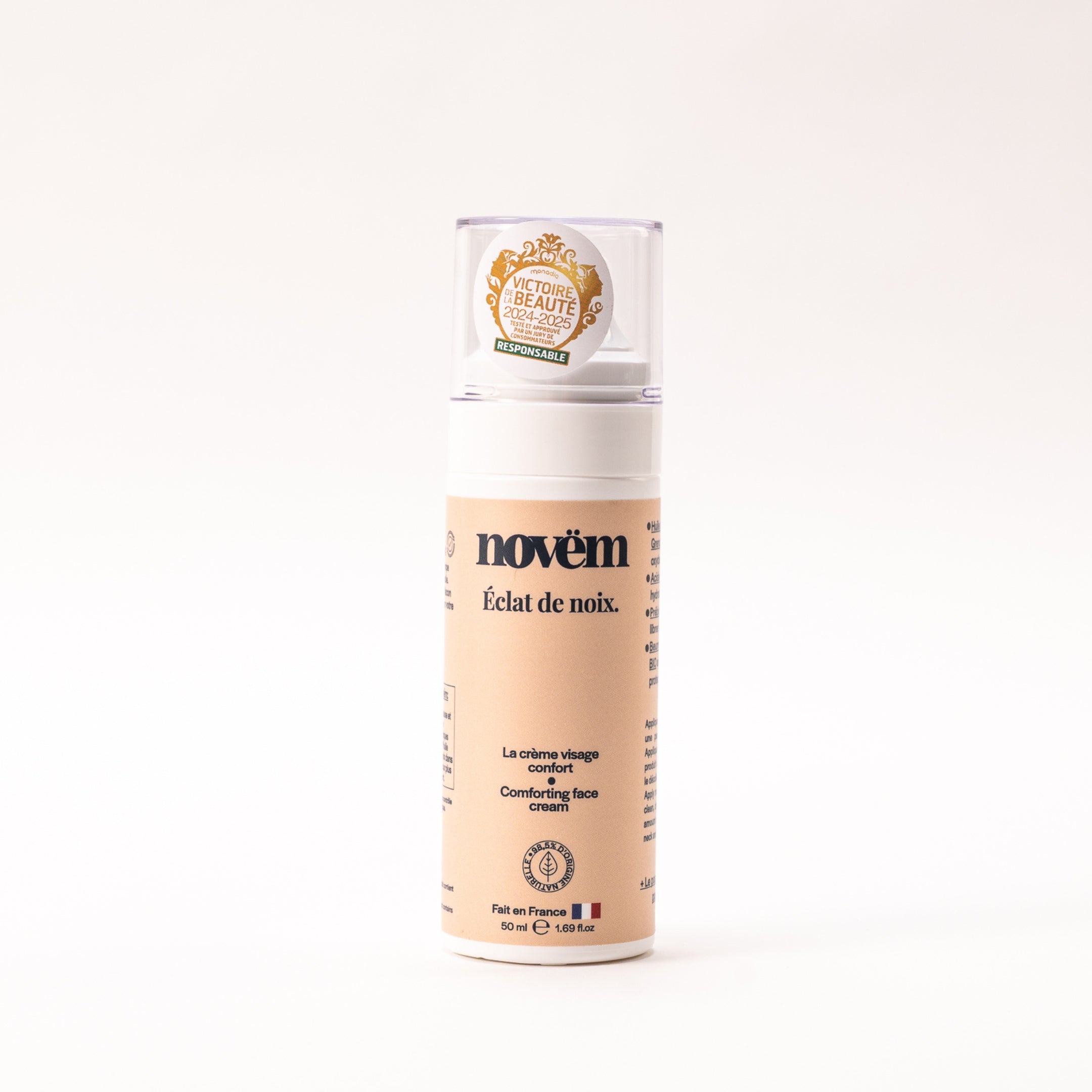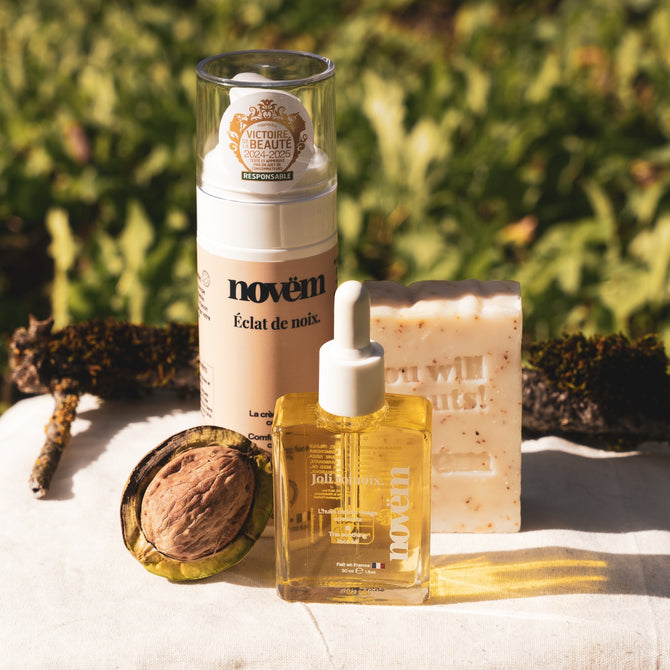When you suffer from acne, the idea of applying oil to your face may seem counterintuitive. After all, acne is often associated with excess sebum, and adding an oil could make the problem worse… or not. In fact, certain oils are not only great for acne-prone skin, but they can also play a key role in treating it. In this article, we’ll explore the relationship between facial oils and acne, debunking common misconceptions, and highlighting the specific benefits of certain oils, including PDO walnut oil , which is great for blemish-prone skin.
Understanding Acne: Causes and Mechanisms
What is acne?
Acne is a skin condition that occurs when hair follicles become clogged with a mixture of sebum (the skin's natural oil) and dead cells. This obstruction creates an environment where bacteria can proliferate, leading to inflammation, pimples and blackheads.
The main causes:
- Excess sebum : Produced by the sebaceous glands, excessive sebum clogs the pores.
- Hormonal changes : Hormonal fluctuations, especially during adolescence or before menstruation, stimulate sebum production.
- Stress and Diet : Chronic stress and an unbalanced diet can make acne worse.
- Improper care : The use of aggressive or comedogenic products can disrupt the balance of the skin.
Misconceptions about facial oils and acne
Misconception #1: “Oils clog pores.”
False! Not all oils are created equal. Some are comedogenic (clog pores), but others, like walnut oil , are non-comedogenic and absorb easily without leaving a greasy residue.
Misconception #2: “Oily skin doesn’t need oil.”
On the contrary, oily skin can benefit from oils that are tailored to regulate sebum production. When skin lacks essential lipids, it can overproduce sebum to compensate, making acne worse.
Myth #3: “Oils make inflammation worse.”
Certain oils, such as those rich in omega-3s and antioxidants, have anti-inflammatory properties that soothe the redness and irritation associated with acne.
What types of facial oils to use for acne?
1. Non-comedogenic oils
Oils with a low comedogenic index (0 to 2) are the best allies for acne-prone skin. They do not clog pores and provide essential nutrients to the skin.
2. Oils rich in essential fatty acids
Omega-3 and omega-6 found in oils like walnut oil help balance sebum production and strengthen the skin barrier.
3. Oils with antibacterial properties
Some oils have natural antibacterial properties that limit the proliferation of bacteria responsible for acne.
Focus: The benefits of walnut oil for acne-prone skin
1. A non-comedogenic oil
AOP Walnut Oil has a low comedogenic index, meaning it is unlikely to clog pores.
2. Anti-inflammatory properties
Rich in omega-3 and polyphenols, it reduces inflammation and soothes redness associated with pimples.
3. Sebum regulation
Walnut oil helps balance sebum production, preventing excesses that promote breakouts.
4. A restorative and protective action
Its high content of vitamin E and antioxidants helps repair the skin barrier and protect the skin from external aggressions.
5. An ally against scars
Thanks to its regenerative properties, walnut oil helps reduce acne scars and improves skin texture.
How to integrate a facial oil into a routine for acne-prone skin?
Step 1: Gentle cleansing
Use a gentle, non-aggressive cleanser to remove impurities without stripping the skin.
Step 2: Application of a care oil
- Take 2 to 3 drops of walnut oil.
- Warm it between your hands, then apply it to slightly damp skin to promote absorption.
- Massage gently in circular movements.
Step 3: Hydration
Apply a light moisturizer suitable for acne-prone skin. The oil used beforehand acts as a hydration booster.
Mistakes to avoid with facial oils
1. Applying too much oil
A few drops are enough. Excessive amounts can overload the skin and cause a greasy feeling.
2. Use comedogenic oils
Avoid oils like coconut oil or palm oil, which are too rich and can clog pores.
3. Neglecting cleaning
Applying oil to uncleansed skin can trap impurities and make acne worse.
Face Oil and Acne: What the Studies Say
Studies have shown that certain oils rich in unsaturated fatty acids, such as walnut oil, can reduce skin inflammation and improve the skin's barrier function. In addition, their antioxidant-rich composition limits sebum oxidation, a process that promotes acne breakouts.
Why choose Novëm for your care oil?
At Novëm , we use AOP Grenoble walnut oil , a 100% natural and local ingredient, from organic farming in Isère. Our formulations respect the needs of acne-prone skin thanks to a unique combination of soothing, restorative and non-comedogenic active ingredients.
Our flagship products for acne:
- The Care Oil : A pure and light formula, ideal for moisturizing and soothing skin prone to imperfections.
- Walnut Balm : Perfect for calming redness and protecting the skin without clogging pores.
Conclusion
Yes, you can use a facial oil even if you have acne, as long as you choose suitable oils such as walnut oil . Its anti-inflammatory, regulating and non-comedogenic properties make it a valuable ally for soothing and improving the condition of the skin. Don't be afraid to integrate this natural treasure into your routine, and discover how it can transform your skin gently and effectively.
Take care of your skin naturally with Novëm products. Discover our nut-based solutions on our site and enjoy the benefits of local and expert cosmetics.






